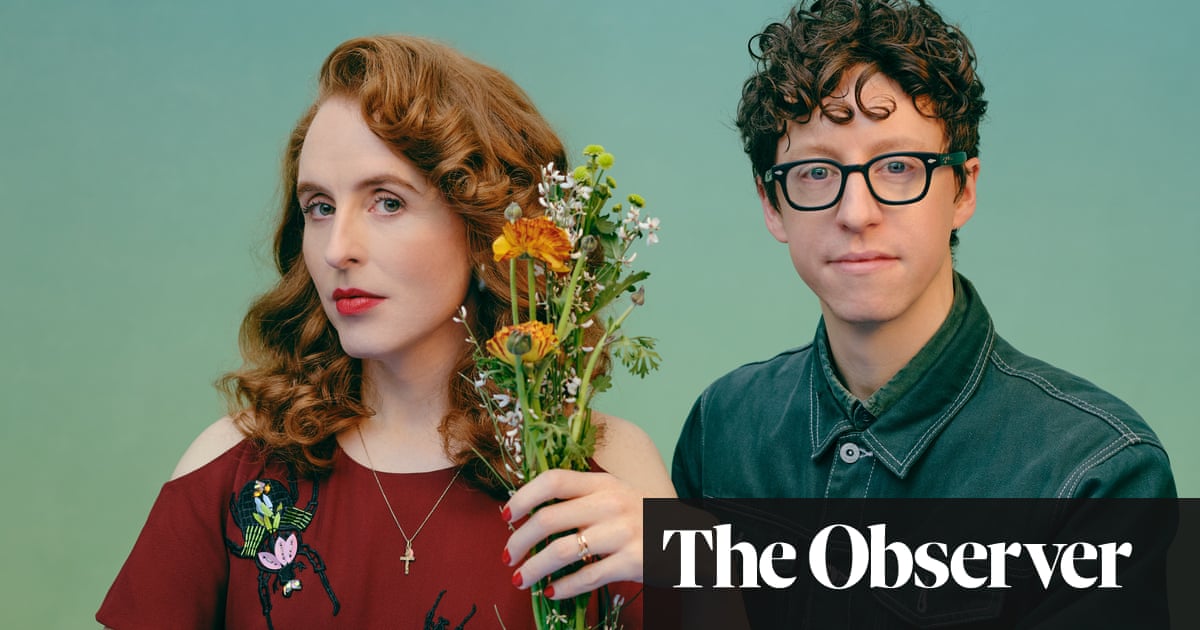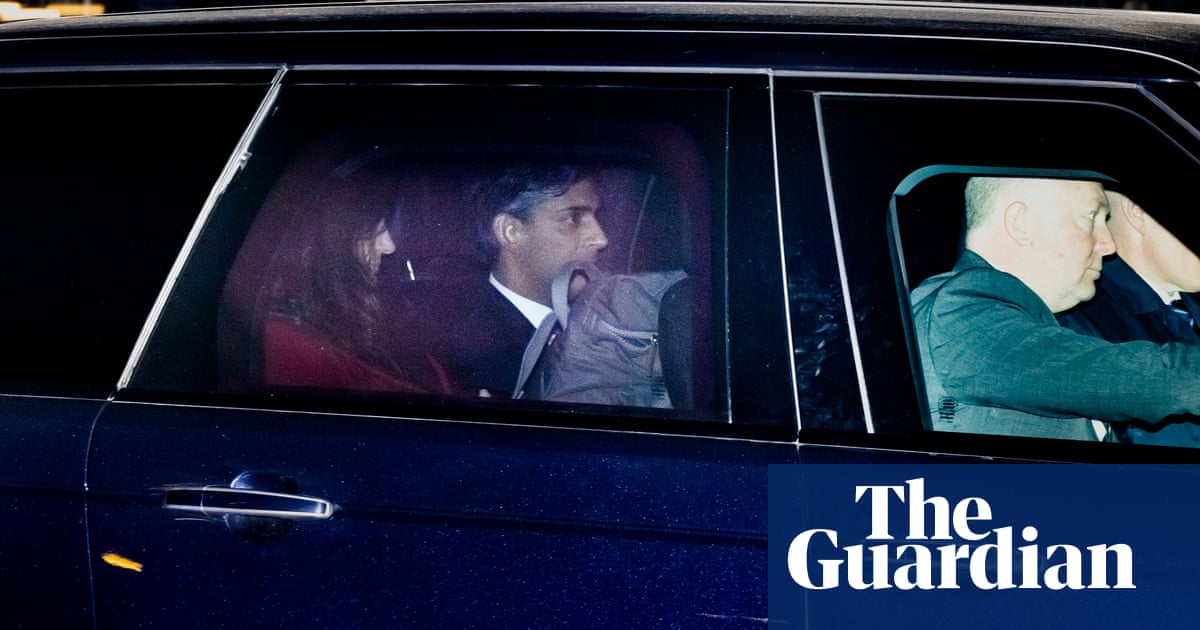
Iput the book in the post with a note that said, “I know that once you’ve read this you may never want to speak to me again, but please know I couldn’t but write it.” The envelope slipped into the postbox and landed with a muffled thud atop a heap of hopes and squabbles and council tax rebates. My stomach quivered at the thought of what I’d done. In a day or so he would have my book, a novel that was as much his story as mine, testimony to a love we shared, and shared the loss of.
We met completely by chance, on Myspace, barely out of our teens, back in the indie sleaze days. We had no mutual friends, we found each other just by clicking about, discovered that we had a similar sense of humour, recognised that we had ridden parallel trajectories from the northwest to London in search of ourselves and others. He was studying at the Royal Academy of Music, I was at King’s College, he was becoming a composer, I was becoming a woman. He introduced me to György Ligeti and Maria Callas, I took him to nightclubs in Shoreditch where we danced until 2am to the Klaxons and the Yeah Yeah Yeahs.
We went everywhere together and always called each other “Marge”, a joke that stuck. We collaborated on our artistic endeavours, wore each other’s clothes, worked part-time jobs in neighbouring boutiques – for a while we even lived together in his bedroom. We were so inseparable that people assumed we were a couple, a ruse we played along with whenever either of us had a suitor who wouldn’t take a hint, and I suppose that’s where it got complicated.
I started seeing a handsome architecture student, a lanky, scornful party boy with the most laughable pickup lines imaginable who all the same radiated a lethal sexual charisma. He was a real disco Lothario. And though, of course, I knew better, I eventually succumbed to his questionable charms, largely because I wanted to see what all the fuss was about. In this new lover I found the perfect sparring partner. We disagreed on almost everything, artistically and politically. We couldn’t communicate at all outside the bedroom. But I honestly didn’t see that as much of a problem. My lover caused me endless troubles, he was coarse and inconsiderate, often misogynistic, occasionally transphobic. I never knew how to challenge him on any of these things, though I did moan about it at length to my friend, who could only sigh and shrug his shoulders.
“Oh, Marge,” he’d say, “I don’t know what you see in him.”
When I set off to the US after graduation, to pursue my dream of becoming a real bohemian, my friend came to wave me off at Heathrow. My lover, peeved and irascible, and as I now understand, hurt, did not. All the same I wrote to the pair of them via email and post almost constantly for the two years I was away. The steady flow of mail back and forth across the Atlantic kept me abreast of their lives, their careers, their wins, their losses, though they were oddly taciturn on the subject of love. When I returned I assumed that life in London would be just as I left it, blinded I suppose by my own self-importance. I fell right back into my lover’s bed, of course, and the next morning met with my friend to pick over the gruesome details, just like the old days. Only this time when I told him how I’d spent the night he turned white and the truth of the matter hit me cold and hard.
“Oh,” I said, “You’re dating him aren’t you?”
Very soberly he replied, “Yes, for six months now.”
I sublimated my rage, my hurt, my shock because I loved them both. I believed, naively perhaps, that there might be a way through this for us and maybe three more mature, less traumatised individuals could have styled it out. I was full of Californian strategies for polyamory, but neither of them would even talk about the mess we were in. My lover believed he was fully entitled to sleep with us both, never even considering the consequences. Worse, my friend, undoubtedly feeling betrayed, shut down whenever I tried to broach the subject. My suggestion that our common lover was the real asshole, that he was bad news for my friend, was not well received. “I don’t want to interfere…” I began, but my friend cut me off. “So don’t,” he said tersely.
We had all grown up in the long shadow of Section 28, in a wildly queerphobic society where even the most milquetoast manifestation of gay love, two white men holding hands and fighting for marriage equality, was an insane provocation. We had so much internalised homophobia, femmephobia, how could we ever hope to articulate what we were feeling in this strange triangulation of love, desire and jealousy? My friend was looking for something like respectability. I wanted a nebulous queer utopia. My lover wouldn’t consider any of it, he had only contempt for the discourse around sexual politics. Every possible way out seemed humiliating, each of us was stoppered by shame, indignity silenced us.
I for one did not want to show that I was wounded, and how can wounds heal if they aren’t exposed to the light and the fresh air? I saw myself as louche and iconoclastic. I didn’t ever want to be seen to lose my cool. In effect I was trying to escape the muddy hysteria of an extremely volatile council estate childhood. In my attempt to shake off the stigma of poverty I had conflated any expression of real feeling with the image of my mother embroiled in doorstep slanging matches with aggrieved social workers; this was not the figure I wanted to cut in the world any more.
Truly, none of us could voice our needs, none of us could say what it was we wanted and, unsurprisingly, none of us ever got what we wanted. In such a situation I did the only thing I could do, I chose my best friend over my lover and bowed out of what was now their relationship. I continued a somewhat cooler association with my friend, but never spoke more than a few strangled words to my lover again. He died a few years after all of this blew up, very suddenly, in a horrible accident; the last thing I said to him, though unprintable, still weighs heavy on my mind.
We were marooned by his loss, my friend and I, isolated even from each other in our grief. His death did not bring us closer – it just made all of our conflicting passions ever more unspeakable, taboo. Even if I had managed to overcome my squeamishness and emotional dissociation, I don’t know if I would’ve spoken up. I had learned at a young age that to even suggest that someone had done you wrong was to ask for a long, stinging lecture on the theme of You Don’t Know How Good You’ve Got It, if not a punch in the mouth. Moreover, I didn’t want to cause my friend any more suffering by telling him how he had hurt me, since I well knew it would pain him to know that I was torn up, too. Besides, I wasn’t even sure that I had any right to feel as I did, since it was me who had come crashing back in and knocked it all off balance in the first place. Our lover’s sudden death simply sealed off the conversation for good.
Of course we kept in touch, I sent my friend postcards from Japan, Brazil, Norway, all the places I fled to. But he acknowledged them with dwindling frequency. He invited me to see performances of his work at galleries in east London, at the Southbank Centre, only I was increasingly unable to attend, previous commitments you see. We tried a few times to hash it out, clear the air, to say how we really felt, but we didn’t get anywhere, we didn’t have the vocabulary. It was as pathetic as watching a miserably married couple deciding to give it another go at the back of a crowded Pret, her sobbing with relief into a matcha latte, him searching desperately for the fire escape.
Once, we had emblematised glamour, adventure, a capacious future for each other. Now we had become symbols of dolour, shorthand for loss, frustration and unresolved anger. Slowly and sadly we shrank into the most loveless corners of each other’s lives, lingering in the shadows like shades, discarded like a crush from childhood, faded like a Polaroid that didn’t turn out. I thought of my friend often, but not always without pain. Occasionally little notes fell through my letterbox in his distinctive sloping script, so I knew that I was still with him, that somehow we were still connected. But we were no longer bound together like before. He continued with his life and I with mine, and even if we could never quite invoke a final rupture, our paths were now unhappily diverged.
Years of indifference came and went. I moved to Berlin and back, he moved into our lover’s old flat. I heard he was working with some major label pop stars, I was still scratching out a living and trying to get an agent. I took a trip to Mexico with a new boyfriend, but we broke up a few days after arriving, and I found myself quite alone, without so much as a ticket home. If ever there was a time I needed my friend, it was then.
In the back of a notebook I started to write to our departed lover, quite without design. Maybe fresh heartache had reminded me of unhealed hurt. Perhaps it was the fact I’d felt his spirit at my shoulder since the day he died. I couldn’t say. All I know is that I had nothing but time and this feeling of unfinished business, so I took a seat in a bookstore café and began to write what I thought at first was just a letter, and which became something else entirely, a much bigger narrative, a novel about a worldweary writer who revisits all of her old correspondence to try to discover who the man she loved really was. It is a work of fiction, but the initial spark was very real, an attempt to summon up tractable versions of my friend and my lover and ask them the questions I was never brave enough to voice in this reality: why didn’t you tell me? Why couldn’t we have tried to work it out? Do you miss me?
I wrote with a fury and a focus I have never known. It took 12 weeks. I cried almost constantly. When it was finished I was exhausted and euphoric and almost as quickly as I had written it I found an agent, an editor, a publisher. That’s when it became real, that’s when I understood that I couldn’t just wait for my friend to stumble across the book at Foyles, read an extract online, recognise himself. I had to tell him straight up, so I put a proof copy in the post with a note that said, “If I’ve hurt you please forgive me.”
I waited and I fretted and I waited some more, unsure if he would even reply, and when he did I couldn’t bring myself to open the letter for almost two days. He had read the book that I so dreaded posting, read it and liked it. Undoubtedly it was a shock to him, it is not an easy book, it is explicit and exposing, but miraculously, reading it had evoked for him real waves of joy, had reminded him of why we were once such good friends, had told him that he wanted me in his life again.
And I felt the same. In writing it I had the chance to revisit the early days of our friendship, the dancing, the exhibitionism, the shoplifting, the celebrity run-ins. We had shared so much, and renounced it so quickly, and over what? A bloke? We both realised that this didn’t cast us in a particularly flattering light, meekly acknowledging, yeah, we could’ve handled that better. Our early friendship had spanned the most formative period of our lives. We needed to be able to look back on it with something other than shame and anger.
We started spending time together again, circumspect at first, dusting off the soubriquets and scandals of our 20s, retelling our most beloved anecdotes, revisiting cherished times. We went on coffee dates, went to lunch, to a few house parties, and in September we raised a toast to our lost lover on the 10th anniversary of his death. My friend said, “I think I finally understand how it was for you now, knowing that you loved him too.” I suppose, ultimately, we both had to go through the process of saying goodbye to him in our own way, my friend through music, myself through writing, before we could meet each other again on the other side.
I got married last month and my friend was there. He has a beautiful new squeeze, too, the two of us in loving, long-term relationships with men who are emotionally available, who aren’t ultimately ashamed of their sexuality, who have helped us heal. We have both come to understand that we are entitled to our feelings, that though they might well cause a reaction when expressed, this is no reason to negate or ignore them. In brief we have grown up. We know ourselves and we know each other, we have plenty to share and little to hide. There’s no second guessing now, no potential double meaning.
We know we’re the lucky ones, the survivors. We owe it to those three confused and horny twentysomethings we once were to muddle through the grief and into the light, because life is short, even when the days feel long, and we have so much time to regain. We’re luckier still because not everyone gets a do-over – in making up we’ve freed ourselves from the weight of the past. We don’t seek to forget that past, because it is our shared origin, rather we’re building on it, me and Marge, towards a shared ecstatic future. It’s a precious thing, this second act.
At Certain Points We Touch by Lauren John Joseph is published by Bloomsbury at £9.99. Buy it for £9.29 at guardianbookshop.com
Hair and makeup by Jenny Green using Hairstory, ILIA and Typology. Shot at Luma studios












